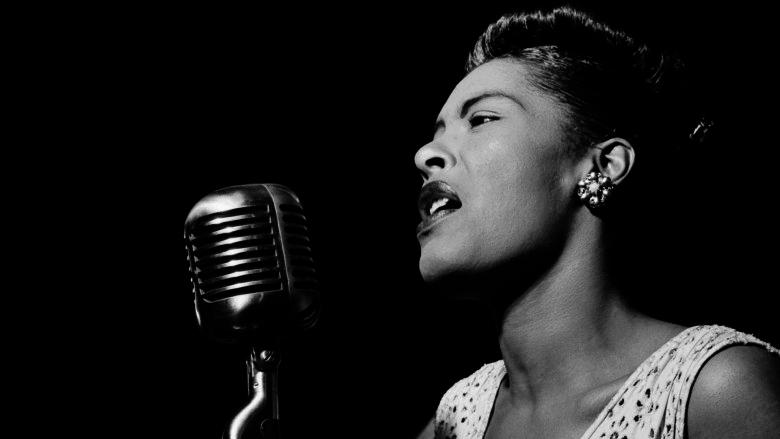I remember my grandmother’s house on Grape Street in Buffalo’s Fruit Belt neighborhood. She and I chatted in the kitchen while the records played. Billie Holiday’s voice floated out from the other room and wafted through the air into the kitchen like a sweet perfume. I was enraptured by the melody, her voice, the hypnotic rhythm of the song. My grandmother turned her small frame to me, looked me in the eye, and said “This is Strange Fruit. The name of the song. Do you know what strange fruit is?”
I wracked my 11-year-old brain as I sat on her lime green counter wondering if she meant some exotic fruit from an island, or some common fruit at the supermarket. Was this a trick question? She stirred the pot on the stove. I felt the the edge of the countertop dig into the back of my thighs.
“What is strange fruit?”
She walked into the other room and beckoned me to walk with her. She lifted the needle off the LP and placed it at the beginning of the song.
Her voice strong and rich urged me to hear. “Don’t listen to the music—you’ve heard that. Listen to the words. Just the words.”
I did. I listened to each word, each phrase. I heard how “pastoral” scenes and the scent “of magnolia” decayed into human misery. I knew of lynchings, but I’d never thought of the bodies. The bodies left to hang there.
In my mind, I juxtaposed the scene of dead bodies “swinging in the southern breeze” with picnics, of children playing, and taking ears as prizes. This was a carnival-like affair. Prizes to be had from the Strange Fruits.
“They don’t do that anymore… well, not like they used to,” my grandmother said.
My grandmother, perhaps sensing that the song had transported me, changed the subject. But our conversation, the song, the images, and the ones I’ve seen since then have stuck with me.
In the early '70s when I was four, my family lived in the upper flat of Gramma’s house. The flat was spacious and full of sunlight. I would spin round on cup-like swivel chairs until I got dizzy. I freely wandered between households, up and down the stairs. There was nothing that could touch or harm me there.
However, in that same sunny room, I watched the KKK on television and witnessed my father’s anger at the men in white hoods as he explained their views to me. I began to learn that Blackness meant the world saw me in certain ways. I don’t remember learning that I was Black; it was something I always KNEW. There was already knowledge of “difference,” but not of threat. Over the years, I learned time and time again that people would hurt me over something I had no control over. My skin. This marked for me my last moments of innocence.
Occasionally, someone will ask why I post on social media so many thoughts, articles, and memes related to diversity and history. The general answer is that collectively we must discuss these things to make changes - to make us better, safer, and (hopefully) kinder to one another. The other, more personal answer is that it's because there have been moments in my life when I have felt my skin color keenly. There have been moments when my Blackness was not just a part of my identity, one identifier among many - gender, class, status, life experience, spirituality - which influence my very personhood. I am talking about moments when external events temporarily forced my race to be THE identifier.
Now, as an adult living in a time of racial restlessness and unrest, I return to the images of Strange Fruit. This IS a time when bodies, primarily Black, fall to the ground, as though they’re fruit left there to rot. I think about fruit stolen from its native land, smuggled on ships and transplanted in new soil, only to be abused and then treated as a weed or pest. I think about Strange Fruits more fully.
Please, don’t view my awareness of self as negative. I am simply alert to life. I live it realistically and with appreciation. It is normal and appropriate that I feel my Blackness fully at times.
More nowadays, I think of those planters who sowed the seeds of Strange Fruit. They wonder why the fruit isn’t sweet and pliable. Why does this fruit leave a bitter taste in the mouth? Does their yield taste of blood and ashes? Do the brambles make the sweetness difficult to access? Perhaps the fruit isn’t the problem.
Strange fruit, indeed.
Strange Fruit
In honor of Black History Month, we consider the legacy and signifigance of the song Strange Fruit, written by Abel Meeropol and sung by Billie Holiday. On Friday Feburary 24th, international recording artist and Buffalo's own, Drea D’Nur will raise The Spirit of Nina Simone at Kleinhans with her version of Strange Fruit. This song, inspired by a photograph of a lynching, would be named the "song of the century" by Time magazine.

